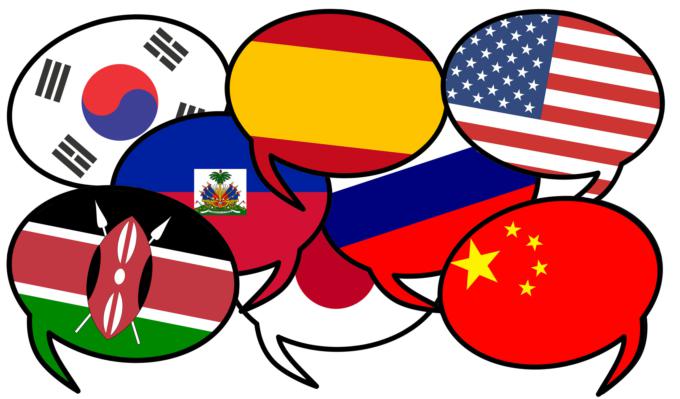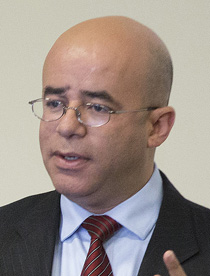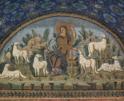
Faith
For many, speaking another language was the equivalent to a deficit, an obstacle, almost an illness that begged for a cure: the cure of assimilation and monolingualism.

Ospino
How many languages do you speak? I speak two, English and Spanish. I can also read comfortably in two other languages. My wife and children are bilingual and so are most of the people with whom I worship every Sunday.
If you attend any major Catholic gathering throughout the United States, chances are that talks are offered in the two predominant languages in which most Catholics worship in the country, namely English and Spanish.
Yet, bilingualism is not limited to English and Spanish. Besides speaking English, millions of Catholics in our country speak Tagalog, Chinese, Korean, Vietnamese, Creole, French, Portuguese, Arabic, Swahili, among many others.
Most dioceses throughout the country celebrate the sacraments in various languages, including Latin. The Archdiocese of Los Angeles alone celebrates Mass in more than 40 languages!
U.S. Catholicism today is a de facto bilingual experience. Well, a multilingual one, to be exact, but for tens of millions of people it is bilingual. We are at peace with it. It is who we are. This is our treasure.
Bilingualism and biculturalism are clear marks of being a U.S. Catholic. We have grown in the appreciation of these realities. Yet, this was not always the case.
Countless Catholics in the 19th and early 20th centuries were asked -- in some cases forced -- not to speak their maternal languages in order to learn English and "fit" in a society that was suspect of difference.
For many, speaking another language was the equivalent to a deficit, an obstacle, almost an illness that begged for a cure: the cure of assimilation and monolingualism.
I have Mexican-American and Japanese-American Catholic friends who tell me stories about how their grandparents did not encourage their children to speak Spanish and Japanese to avoid punishment in school, catechetical programs and at the workplace.
Those languages that carried cultural and religious values, languages that the older generations of Catholics used to make meaning about life, privately and publicly, became constrained to the home until there was no one left to speak them anymore. Their so-called "foreign" words fell into deafening silence.
It worries me that the winds of intolerance and a narrow understanding of social and cultural integration may be winning the day in some sectors of our Church and society. A harrowing past that many considered gone may be returning.
The primary responsibility of Catholics and our pastoral leaders is to evangelize and accompany our sisters and brothers with their (linguistic) gifts in light of the Gospel values.
Yet, some choose to act first as warrantors and enforcers of some form of "Americanization" process -- defined ambiguously in a significantly polarized society -- embracing assimilationist attitudes such as "only English" for their programs and liturgies.
In doing this, they walk a fine line that may lead them to minimize, if not reject, the value and potential of bilingualism and biculturalism.
Many in our society, and in our faith communities, are quick to rejoice and admire celebrities and wealthy people who teach their children a second language -- Spanish in many cases. Ironically, these same people fall into the trap of underappreciating Hispanics and millions of others who are already bilingual.
Some people worry that if one speaks Spanish, one will not learn English. That is not true. The immense majority of U.S.-born Hispanics speak English fluently -- and many also speak Spanish.
Two-thirds of Hispanic adults are bilingual. Keep in mind that 20 million of Hispanics in the U.S. are immigrants, mostly adults. If anything, we should celebrate their widespread command of English, a fact that often goes unnoticed.
Let us celebrate and affirm bilingualism as our Catholic treasure.
- Hosffman Ospino is assistant professor of theology and religious education at Boston College's School of Theology and Ministry.
Recent articles in the Faith & Family section
-
Popular devotions and the liturgyFather Robert M. O’Grady
-
The Fight for Our FaithMaureen Crowley Heil
-
The shepherd's voiceScott Hahn
-
Scripture Reflection for April 21, 2024, Fourth Sunday of EasterJem Sullivan
-
The new Temple: How Easter changes religionDr. R. Jared Staudt


















